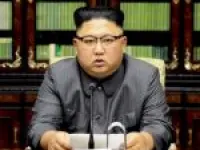
Sonia Gandhi’s Harsh Critique On India’s Silence On West Asia Developments
Congress Parliamentary Party Chairperson Sonia Gandhi has strongly criticised the Indian government’s silence over escalating military tensions in West Asia, especially following Israel’s recent strike on Iran. In a sharply worded opinion piece, Gandhi described the silence as “not just a loss of voice but also a surrender of values.”
She condemned Israel’s June 13 airstrike on Iranian territory as “deeply troubling and unlawful”, warning that such unilateral aggression displayed “utter disregard for civilian lives and regional stability” and could “sow the seeds of further conflict.”
The attack came at a time when diplomatic negotiations between Iran and the United States were showing signs of progress. Gandhi highlighted that five rounds of talks had already taken place in 2025, with a sixth planned for June. She said the Israeli operation had effectively derailed this diplomatic momentum, making the strike “all the more distressing.”
Sonia Gandhi also launched a direct attack on Israeli Prime Minister Benjamin Netanyahu, accusing him of having “a long and unfortunate record of undermining peace and nurturing extremism.” She recalled his role in creating a climate that led to the assassination of Israeli Prime Minister Yitzhak Rabin in 1995, which derailed peace efforts between Israel and Palestine.
U.S. President Donald Trump also drew criticism. Gandhi called his decision to ignore his own intelligence chief’s assessment—stating instead that Iran was “very close” to acquiring nuclear weapons—“deeply disappointing.” She expressed concern that such rhetoric could reignite misinformation-fuelled conflict in the region.
Gandhi argued that while Israel’s security concerns about a nuclear Iran are legitimate, “there can be no room for double standards.” She reminded readers that Israel itself possesses nuclear weapons and has a history of regional military aggression, whereas Iran remains a signatory to the Nuclear Non-Proliferation Treaty and had committed to stringent restrictions under the 2015 Joint Comprehensive Plan of Action, before the U.S. unilaterally withdrew from the agreement in 2018.
Highlighting India’s historical ties with both Iran and Israel, Gandhi said this gave New Delhi “the moral responsibility and diplomatic leverage to act as a bridge for de-escalation and peace.” She underscored Iran’s past support to India, particularly during the Kashmir crisis in 1994, and called attention to the Indian diaspora living across West Asia, for whom peace is a matter of national interest.
Turning to the humanitarian catastrophe in Gaza, Gandhi noted that more than 55,000 Palestinians have lost their lives amid Israel’s ongoing military actions. She criticised the Modi government for abandoning India’s traditional support for a peaceful two-state solution. “New Delhi’s silence on the devastation in Gaza and now on the unprovoked escalation against Iran reflects a disturbing departure from our moral and diplomatic traditions.”
Gandhi concluded with an appeal: “It is still not too late. India must speak clearly, act responsibly, and use every diplomatic channel available to defuse tensions and promote a return to dialogue in West Asia.”
Her remarks come at a time when India’s strategic silence on Israel’s aggressive actions is drawing increasing scrutiny, and her critique may spark renewed debate on India’s diplomatic posture in global affairs.













